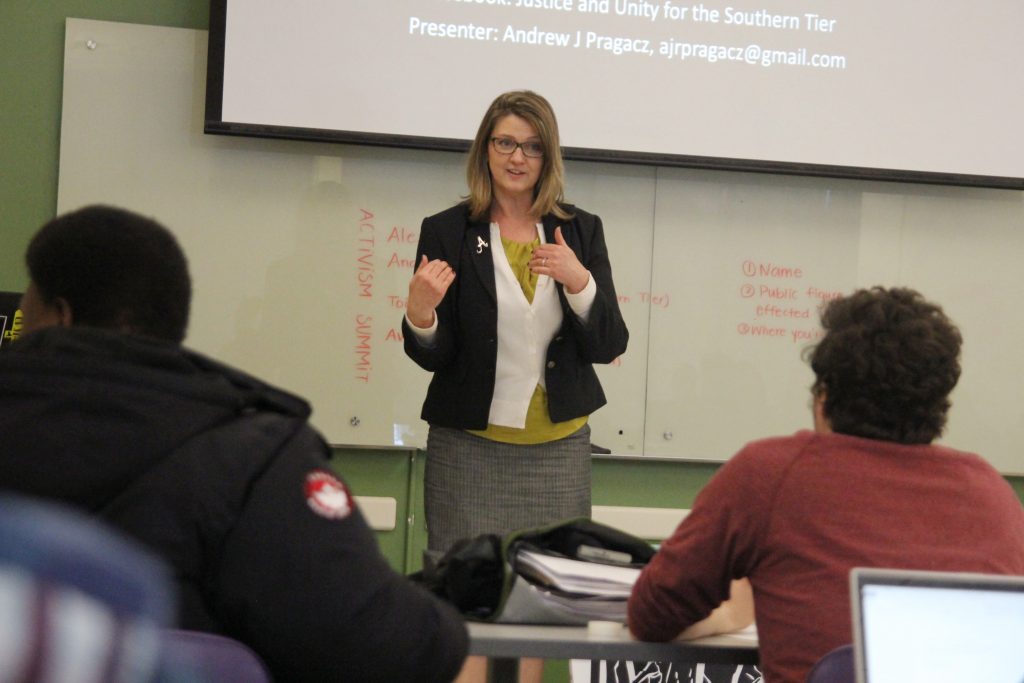
In an effort to bring student and community activists together, the Binghamton Progressive Leaders of Tomorrow — a local organization that advocates for social justice — hosted an activist summit on Wednesday in Old University Union.
Graduate students and community members spoke on behalf of various activist groups such as the Justice and Unity for the Southern Tier, a local group that is dedicated to dismantling mass incarceration, and Truth Pharm, an organization that advocates for policy changes in regards to substance abuse and treatment.
Andy Pragacz, a member of Justice and Unity for the Southern Tier and a fourth-year graduate student studying sociology, spoke about mass incarceration and how it occurs at the local level in county jails.
He also highlighted various ways students and community members can get involved by attending city council meetings and through education.
“There’s a long-standing tradition, one that I think we need to bring back, of making sure we educate and making sure we bring our young people into the decision-making process,” Pragacz said. “If we’re not passing along knowledge then we’re not building viable organizations.”
Truth Pharm President Alexis Pleus spoke about her experience as a mother with sons who were addicted to opioids and called for the decriminalization of drug addiction and substance abuse.
Pleus also said that people should hold government officials accountable for the opioid epidemic. He said that his generation allowed the government to make bad drug laws, but the younger generation was now responsible for changing them.
“We need to fix the complacency that my generation created,” Pleus said. “I think that my generation became very complacent and allowed our elected officials to do what they want.”
Toivo Asheeke, a fifth-year graduate student studying sociology, spoke about the importance of recognizing issues, as well as methods for mobilizing people to make lasting change.
To demonstrate difficulties with mobilizing, Asheeke organized a simulation where people had to discuss a local issue while he also told the audience to interrupt and act uninterested. Through this, people were able to see how mobilizing can be a difficult task, and audience members also offered advice on the subject.
One audience member pointed out how adults can often sound condescending when talking to students about important issues and how that could hurt their efforts in trying to engage young people.
Cara Burney, a second-year graduate student studying biomedical anthropology, said that she attended the event because she is a part of various groups, including Family Planning of South Central New York, and wanted to see the different perspectives of community members and students on activism.
“I think it’s important to bridge the gap between the community and the University, and I think it’s also good to kind of figure out what the best tactics for activism are because we can all have ideas, but it’s kind of hard to put those ideas into action,” Burney said.


